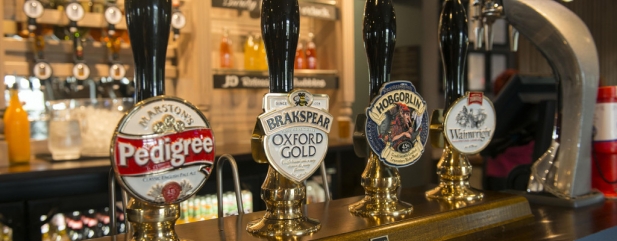Archived article
Please note that tax, investment, pension and ISA rules can change and the information and any views contained in this article may now be inaccurate.
Why you should buy Marston’s for a 7% yield

The tough market backdrop may have blinded investors to the impressive re-positioning of pub and brewing firm Marston’s.
Free cash flow is expected to rise from £47m in 2019 to more than £80m in 2022, according to broker Shore Capital, and this helps underpin a 7%-plus dividend yield.
We see potential for the stock to perform strongly as the strengths of the business become more widely appreciated.
HIDDEN GEM
Greg Johnson, analyst at Shore Capital, says: ‘We continue to view Marston’s Beer Company as a jewel in the crown, with less than 10% of volumes now distributed through its own pub estate.’
Marston’s owns six national breweries and a significant bottling and canning operation. An £8m investment last year in new canning and state-of-the-art bottling lines mean that the company now packages 40% of the UK bottled ale market.
The company has a significant and logistics operation, delivering to one-in-four of all pubs in the UK. In the last 18 months it has won new contracts from the likes of Punch and Young’s (YNGA:AIM).
In addition, Marston’s is the UK’s largest exporter of beer, and the first half of 2019 (the company’s year-end is 29 September) saw volume growth of 17%.
The company is developing a very impressive portfolio of owned and licenced beers, such as Estrella Damm.
There are clear growth opportunities to develop other third-party brands as management recently revealed at the half year results (15 May). They identified the potential for £20m of extra profit in the medium term.
DELIVERING ON STRATEGIC GOALS
The company has two strategic priorities: to increase cash generation and reduce debts by £200m. Recent results show that the company is delivering on these goals. For example, cash from operations grew by 6% to £66.8m at the interim stage, much higher than the reported operating profit growth of 2.4%.
Capital expenditure is expected to be 20% lower in the next two years, while the expected proceeds from disposals are expected to be £129m in the 2020-2023 period, higher than previously guided.
Shareholders benefit very nicely from deleveraging. Lower interest charges mean that equity owners keep a greater proportion of the profits. In theory this should see the shares should settle at a more premium valuation over the medium term.
Marston’s currently offers good relative value, with a dividend yield of 7.3% compared to the 5.2% on offer at Greene King (GNK). Management has committed to keeping the dividend at current levels while it reduces the company’s debts.
Important information:
These articles are provided by Shares magazine which is published by AJ Bell Media, a part of AJ Bell. Shares is not written by AJ Bell.
Shares is provided for your general information and use and is not a personal recommendation to invest. It is not intended to be relied upon by you in making or not making any investment decisions. The investments referred to in these articles will not be suitable for all investors. If in doubt please seek appropriate independent financial advice.
Investors acting on the information in these articles do so at their own risk and AJ Bell Media and its staff do not accept liability for losses suffered by investors as a result of their investment decisions.

 magazine
magazine









